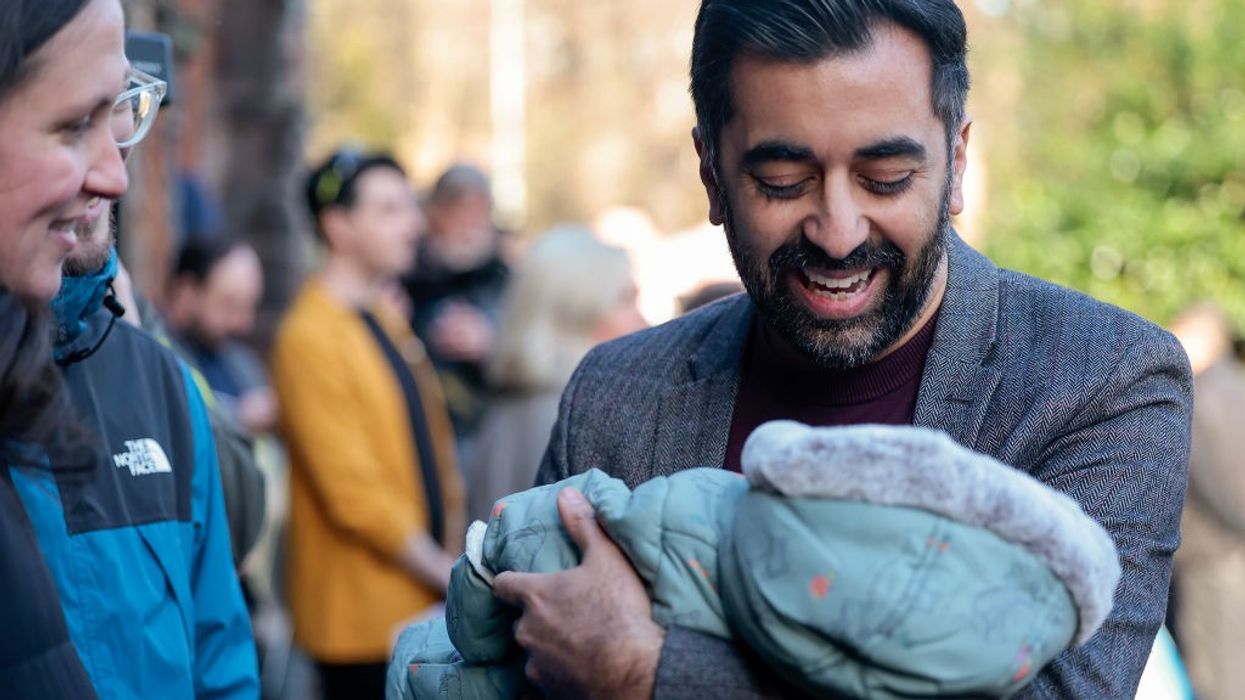SNP leadership candidate Humza Yousaf has said that he missed the final vote on Scotland's equal marriage legislation in 2014 due to an 'unavoidable' engagement about a death row prisoner in Pakistan.
Alex Neil, who was in charge of the legislation eight years ago, alleged that Yousaf skipped the final vote following pressure from Muslim leaders, the Telegraph reported.
Neil added that Yousaf approached the then first minister Alex Salmond for permission to duck the vote as he was 'under so much pressure from the mosque'.
He also alleged that Yousaf arranged a ministerial meeting 19 days in advance to avoid the final vote for the Equal Marriage Bill.
While responding to the allegations, Yousaf told BBC Scotland, "I don't know why Alex Neil has decided to intervene, but I've made my case and I've answered many questions on this already. I support equal marriage. I supported it then, support it now.
"I had an unavoidable meeting on a very important topic in relation to a prisoner on death row in Pakistan for blasphemy."
Yousaf also revealed that he was one of many politicians who were lobbied by the Muslim Council and the Catholic Church at the time.
"I have been forthright, explicit, upfront about my support for equality and that's something that I'm going to continue to support," he pointed out.
He added that he had missed the vote for a serious meeting which resulted in the eventual release of the prisoner in Pakistan.
Yousaf, currently the health secretary in Scotland, voted in favour of the principles of the Marriage and Civil Partnership (Scotland) Bill at the first stage in Nov 2013. But, he was the only minister to miss the final stage three vote on Feb 4, 2014.
Currently, he has his own political problems from mounting issues in Scottish healthcare under his watch, and from contentious hate crimes legislation he pushed in a previous portfolio.
Three candidates- Yousaf, finance secretary Kate Forbes and former minister Ash Regan- will take part in the leadership contest to succeed Nicola Sturgeon as SNP leader and first minister.
Recently, Forbes also caused controversy after revealing that she would have voted against same-sex marriage, had she been a member of the Scottish Parliament when the reform passed in 2014.
While she defended the stance as a matter of personal conscience, it puts Forbes strongly out of line with the SNP's centre-left base, and four high-profile supporters immediately withdrew their backing.
All three candidates have vowed to reinvigorate first minister Nicola Sturgeon's spluttering push to win independence for Scotland, after the UK government blocked her plans to hold a fresh referendum on the issue.
The leadership race was ignited after Sturgeon last week announced her surprise resignation, after more than eight years as Scotland's first minister and SNP chief.
It is the SNP's first full leadership battle since 2004, as Sturgeon was elected unopposed in 2014. The ballot of SNP members, which will use a single transferrable vote system, opens on 13 March and the winner will be announced on 27 March.





